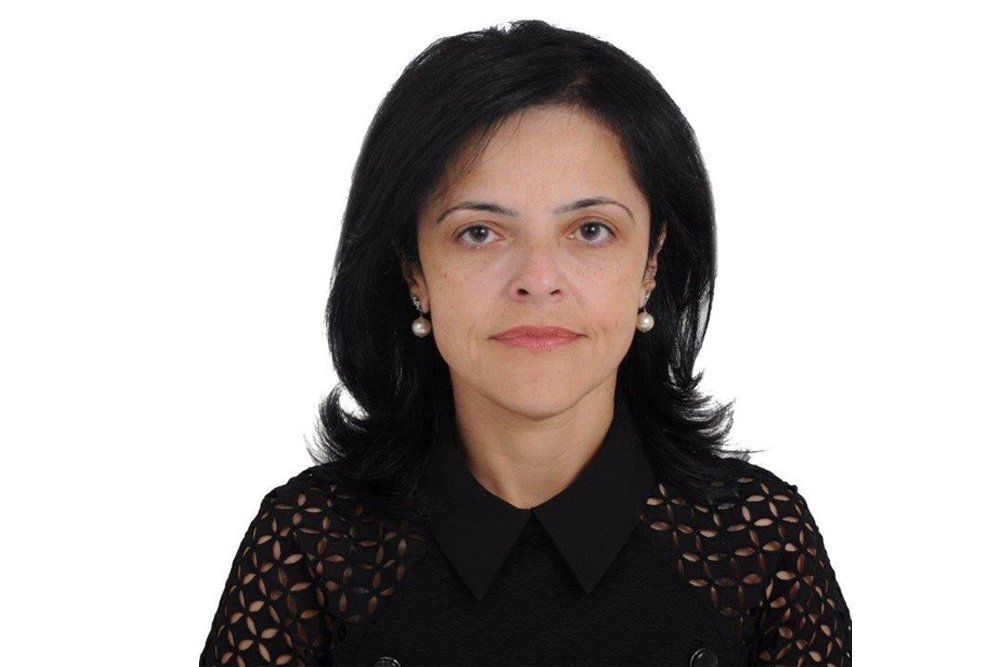“WEMA Health is a science-backed medical weight-loss program that includes extensive lifestyle coaching and stateof-the-art technology, co-developed with the world’s leading obesity scientists, connecting users with endocrine specialists. In fact, modern and clinically documented weight loss medicine will be prescribed in tandem with professional coaching, to empower members to make lasting lifestyle changes,” says Dr. Rita
The prevalence of obesity is rising globally. New data presented in the World Obesity Atlas 2022 shows that, by 2030, it is predicted that 1 in 5 women and 1 in 7 men will be living with obesity (BMI ≥30kg/m2), equating to over 1 billion people globally. In the UAE, the latest data approximates an increase in the UAE’s obesity rate by 35%. In the newly published data, it is estimated that the prevalence of obesity will rise to 50% in women, and 37% in men by 2030, putting the UAE in the top 10 countries in the Easter n Mediterranean with the highest prevalence of obesity.
Obesity is a chronic, relapsing, multifactorial disease. It is also a signicant risk factor for a number of other non-communicable diseases(NCDs) such as diabetes, heart disease and cancer, amongst others. Obesity often starts early in life, and childhood obesity is now a growing public health concern and early prevention is critical. In general, obesity, like all chronic diseases, has a wide range of drivers and determinants. Genetics, biology, healthcare access, mental health, sociocultural factors, equity, ultra-processed foods, economics, commercial determinants and environmental determinants are all roots of obesity. These roots interact and compound one another across a number of systems, resulting in the trends we see today. Metabolic health as well is an important element when we discuss obesity, and it involves not only the food we eat but also our energy and stress levels, emotional health and sleeping pattern.
Dr. Rita Nawar, Medical Director, WEMA Health, explains to mediworldme what WEMA Health Program is and how does it help members lose approximately 20% of their weight.
Tell us in detail about the WEMA Health program?
WEMA Health is a virtual-rst, medicated, end-to-end obesity program that will help its members lose approximately 20% of their weight by deploying in-house top specialists, personalized cognitive behavioral coaching, GLP-1 medication for all and a state-of-the-art app with diet/exercise/psycho-social support.
It is indeed a science-backed medical weight-loss program that includes extensive lifestyle coaching and state-of-the-art technology, co-developed with the world’s leading obesity scientists, connecting users with endocrine specialists. In fact, modern and clinically documented weight loss medicine will be prescribed in tandem with professional coaching, to empower members to make lasting lifestyle changes.

WEMA Health is a virtual-first, medicated, end-to-end obesity program that will help its members lose approximately 20% of their weight by deploying in-house top specialists, personalized cognitive behavioral coaching, GLP-1 medication for all and a state-of-the-art app with diet/exercise/psycho-social support.
How does a virtual program like this work for the region?
Obesity and the relationship between having a healthy weight and the body’s proper functionality have long been studied by scholars, scientists, and healthcare practitioners all over the world. Obesity, like other diseases, impacts bodies and minds in several ways, affecting appetite, satiety, metabolism, body fat and hormone balance. Obesity, therefore, requires management and treatment, and people with obesity need access to appropriate care, specialist healthcare professionals and multidisciplinary teams. Supporting people to live healthier lives is key to healthier societies.
In our region, obesity affects approximately 20 million people in the GCC alone, impacting not only their health but also their overall quality of life. It’s no secret that this chronic condition affects the quality and quantity of a person’s life, impacting everything from respiratory and reproductive function to brain activities such as memory and mood. In the Middle East, it’s estimated to cost our healthcare system USD 30 Bn. With the innovation that WEMA Health brings, we will be able to help people with obesity to a healthier and happier life.
How does WEMA Health aim to tackle the rising obesity rate in the UAE?
WEMA is a scientically backed multidimensional program that combines medicines, coaching and best-in-class digital solutions and this can be very powerful in healthcare. Obesity as a chronic disease requires medical treatment. Not all medicines are suitable for virtual prescribing because of possible contraindications that only a medical physical assessment would detect. However modern weight loss medicines that regulate appetite indeed are. Combining this treatment with fundamental lifestyle changes is what creates wholesome, sustainable, and meaningful solutions for patients. Indeed, at WEMA Health we strive to help our members achieve an unprecedented weight loss of up to 20% – and sustain it with long-lasting lifestyle changes.
What is the role of ‘science’ in the virtual program?
Science is critical in the development of any type of health program. It helps clinicians understand what works, what doesn’t work, and how to apply that knowledge to their practice.
Science also plays an important role in evaluating the effectiveness of new technologies, such as virtual reality (VR), for use in health care and with science being the cornerstone of the WEMA Health program. We have a dedicated team of clinical experts and research scientists who work with us to develop a range of evidence-based content for our members. We also work closely with industry researchers and practitioners to design and conduct research projects that will help us better understand how technology can be used to improve health care outcomes for our members. As previously mentioned WEMA Health is a science-backed medical weight-loss program that includes extensive lifestyle coaching and state-of-the-art technology, co-developed with the world’s leading obesity scientists, connecting users with endocrine specialists. While focusing on all aspects of metabolic health and aiming to achieve a ‘metabolic reset’, enabling users to live healthier lives, combining the treatment with fundamental lifestyle changes to create wholesome, sustainable, and meaningful solutions for users.
The science behind virtual health is based on technology focused interventions that are designed to improve health outcomes; these interventions can be delivered via mobile devices or online platforms, with varying degrees of human interaction.
What is the main aspect of the WEMA Health program and why should UAE residents go for it?
Across the countries, lack of treatment was most often attributed to a lack of obesity care pathways beyond primary healthcare; an absence of multidisciplinary services and appropriately trained professionals; high costs to patients; the prevailing obesogenic environment; and stigma experienced by patients within the healthcare services. Fragmentation and under-prioritization of obesity may also be hindering the progress towards meeting the obesity targets and people with obesity being able to access appropriate care.
On the other hand, as detailed in the previous question, digital health technologies can help providers to reduce inefficiencies, improve access, reduce costs, increase quality, and make medicine more personalized for patients.
In our region, obesity affects approximately 20 million people in the GCC alone, impacting their health as well as their overall quality of life. By combining both the innovation in digital health and the scientic medical management of obesity, WEMA Health will be able to offer people with obesity in the UAE, easily accessible sustainable lifestyle and behavioral coaching as well as best approved available prescription anti-obesity medication tackling the disrupted metabolic health in the disease of obesity, leading to up to 20% weight loss and a more sustainable long-lasting health improvement.
In your opinion what role does digital health play in the medical industry?
Digital health is a broad, multidisciplinary concept that includes concepts from an intersection between technology and healthcare. It applies a digital transformation to the healthcare eld, incorporating software, hardware and services. The broad scope of digital health includes categories such as mobile health (mHealth), health information technology (IT), wearable devices, telehealth and telemedicine, and personalized medicine. These tools have the potential to improve our ability to accurately diagnose and treat disease and to enhance the delivery of health care for the individual.
Digital tools are giving health care providers a more holistic view of patient health through access to data and giving patients more control over their health. Digital health offers real opportunities to improve medical outcomes and enhance efficiency.
These technologies can empower consumers to make betterinformed decisions about their own health and provide new options for facilitating the prevention, and management of chronic conditions such as obesity, outside of traditional health care settings. Providers are using digital health technologies in their efforts to reduce inefficiencies, improve access, reduce costs, increase quality, and make medicine more personalized for patients. Patients and consumers can use digital health technologies to better manage and track their health and wellness-related activities.

Digital transformation to the healthcare field, incorporating software, hardware and services. The broad scope of digital health includes categories such as mobile health (mHealth), health information technology (IT), wearable devices, telehealth and telemedicine, and personalized medicine.
Are you planning to expand in the market, particularly in the GCC?
The pandemic increased the obesity rates in the region and the catastrophic predicted rise in rates of obesity among men and women by 2030, makes it imperative to have multidisciplinary scientically backed medicated obesity programs such as WEMA Health available, to help people with obesity for a healthier and happier life. So, starting in UAE, we aim to progressively make WEMA Health available in the region as well as to order to deliver the world’s available leading obesity treatment combined with lifestyle changes leading to more sustainable and meaningful solutions for the patients.
















